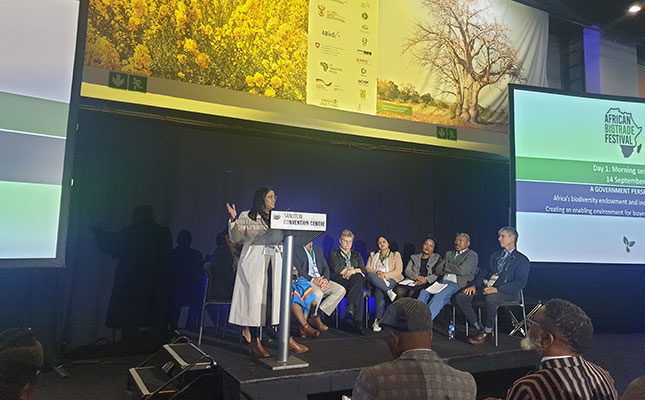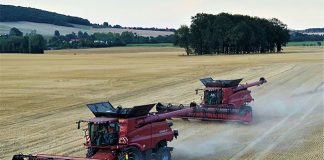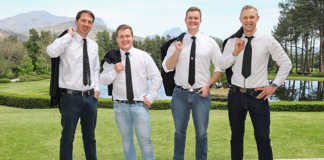
The festival debuted this year as part of the Organics and Natural Products Expo, a flagship event organised by South African Trade Promotions (SATP). It is a collaborative effort with the German aid agency GIZ and is supported by the Department of Forestry, Fisheries and the Environment (DFFE) and the Department of Trade, Industry and Competition.
SATP managing director John Thompson said: “The goal is to sustain socio-economic development in rural areas by developing and empowering SMEs to drive this industry from the bottom up. People are taking an interest in their health and welfare and are looking towards natural products.”
In his keynote address, acting deputy DFFE director-general Sydney Nkosi underscored the critical role of government in addressing the pressing issue of unemployment and how biotrade could create more jobs. He added that “the preoccupation of government is to get millions of unemployed people into the mainstream economy”.
Preshanthie Naicker-Manick, project manager at the United Nations Development Programme, led an insightful panel discussion about the biotrade sector. Various governmental stakeholders discussed sustainable supply, innovation, policy and legislation, and market access in the trade sector in South Africa.
Addressing the challenges of selling traditional products in the export market, Chantelle Strauss, a specialist from the Department of Small Business Development, stressed the importance of SME collaboration for growth in the retail sector, especially for businesses to withstand retail demands and compete at a global level despite the challenge of regulation. “When SMEs collaborate, we start to see growth,” she said.
Cyril Lombard, AbioSA project adviser, explained that even when traditional foods and medicines were considered safe and met regulatory standards in South Africa, selling these products in the export market was complicated and costly.
Prof Sechaba Bareetseng from the Council for Scientific and Industrial Research highlighted the importance of industrialising indigenous knowledge by generating scientific data to substantiate traditional remedies and ensuring that these products could be regulated and recognised in South Africa and abroad. He said this was crucial in getting indigenous products into the mainstream medicine sector.
“South Africa and the continent at large boast a global competitive advantage by harnessing indigenous knowledge to create livelihoods for people,” he said.












